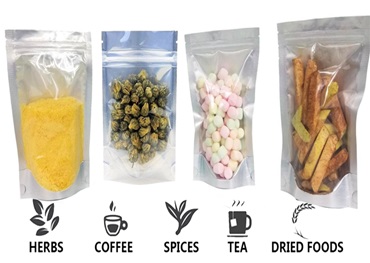Дисплей продуктаНедороженная самостоятельная рука, герметичная консервированная металлическая банка, грибная сардиновая упаковка еда легкая открытая металлическая банкаДетали изображенийМатериал: Прочные и нетоксичные оловянные алюминиевые банки с алюминиевыми банками Воздух плотный и запах доказательство после закрытия Пластическая крышка для повторного просеивания после открытия вытягивания кольца Которые также защищают ваши продукты от сверхэкспонирования до света, пыли и т Д Помогают предотвратить утечки товаров для хранения Как его использовать: Заполните и близко снизу Просто нажмите основу руками, чтобы закрыть и натянуть кольцо, чтобы открыть Для открытия не требуется машина для закрытия, а открытие No Can Ban - Поддерживает ваши продукты защищенными от высоких температур и тепла тела при хранении в кармане штанов Использование: Высококачественные алюминиевые оловянные контейнеры могут использоваться для хранения широкого спектра лосьонов ручной работы, спасателей, кремов, баль...
Изготовленная из высококачественного стекла премиум-класса, наша 5 мл 9 мл 15 мл квадратного стекла, также поставляется с детской квадратной колпачкой Он идеально подходит для любого разнообразия премиальных концентратов, восков или масел Закончив их гладкие, изящные черные детские стойки, концентратная стеклянная банка никогда не может произвести впечатление Благодаря простому, но сложному дизайну, эти банки концентрата становятся легким выбором, чтобы показать любой логотип, повышая узнаваемость вашего бренда в десять раз Отключите себя от толпы с банками концентрата, которые действительно выглядят частью Marijuana420Packaging усердно работает над производством своего стакана с помощью пищевого стекла на рынке самого высокого качества Это обеспечивает максимальную безопасность и свежесть для вашего концентрата внутри Руководство по емкости концентрата следующим образом:5-7 мл может соответствовать 1G9 мл может соответствовать 1-2G15 мл может соответствовать 2-4 г Макияж косметическое...
Широкий рот стеклянный контейнер с запахом оборудование для устойчивости к детским стеклянным банкам с увеличительными крышками
Дисплей продуктаБольше нет поврежденного продукта:Чистое и удовлетворительное тактильное ощущение металла меняет игру в мире пластиковой упаковки Будучи легкой, так и удобной, оловянной упаковкой может дать освежающее дыхание жизни продукции вашего бренда Детали изображений Уточнится / устойчиваяПравильно представляют значения вашего бренда со 100% переработкой оловянной упаковки Обновление на индивидуальные металлические коробки действительно может изменить ситуацию и позволить вашему бренду процветать, так как экологически чистые тенденции упаковки становятся более горячими Матовая отделкаНаденьте свои индивидуальные металлические коробки с матовой отделкой, чтобы сделать сильное заявление об угле, которое пытается принять ваш бренд MATTE, как правило, больше обслуживается современным, минималистичным стилями и обеспечивает более плавное ощущение вашей оловянной упаковке Карманные размеры и детское доказательствоРазмеры (снаружи): 50 мм x 50 мм x 15 мм/88 мм x 58 мм x 20 мм/118 мм x ...
 2025-01-17
2025-01-17
Высокий конопляный экстракт CBD BRC-002 получает обозначение лекарств для сирот от FDA США для сложного регионального боли
Недавно, биофармацевтическая корпорация (BRC), специализированная фармацевтическая компания, разработающая фирменные терапии каннабиноида, объявила, что Управление по пищевым и лекарствам США (FDA) предоставило статус лечения сироты с высокой CBD экстрактом HEMP [BRC-002] для лечения комплексного регионального бокового синдрома (CRP) CRPS - это изнурительное, хроническое болеутоляющее заболевание, часто вызываемое травмой, такой как перелом или операция В дополнение к тяжелой боли, пациенты могут страдать от таких осложнений, как депрессия, беспокойство и расстройства сна Для тех, кто страдает от CRP, ограниченные варианты лечения привели к тому, что условие называют «самоубийственной болью».
В настоящее время в Соединенных Штатах нет одобренных FDA для CRPS, что подчеркивает неотложную потребность в новых терапевтических подходах BRC-002-это новый кандидат от перорального каннабиноидного терапевтического продукта, созданный из растительного происхождения, предназначенный для лечения как боли, так и связанных с ними осложнений CRP Каннабиноидные терапии BRC содержат КБР (каннабидиол) и другие незначительные каннабиноиды в определенных и запатентованных соотношениях, что делает их высокоэффективными для различных условий
3 октября 2024 года была введена первая доза в фазе 1 клинического испытания BRC-002 для сложного регионального боли (CRPS) Исследовательское лечение изучается в рандомизированном плацебо-контролируемом исследовании фазы 1 (Clinicaltrials Идентификатор правительства: NCT06393101) для оценки потенциальных эффектов и механизмов BRC-002 у взрослых пациентов с CRPS В исследовании зарегистрировались пациенты в возрасте от 21 до 75 лет, у которых были постоянные CRPS в течение не менее 3 месяцев и в настоящее время не использовали продукт каннабиса Первичной конечной точкой исследования является измерение ответов на тепло и постоянную боль в CRPS с использованием 11-точечной визуальной аналоговой шкалы, оценивая изменения от исходной интенсивности боли и показателей дискомфорта 
«Обозначение лекарств для сирот для BRC-002 также демонстрирует необходимость найти безопасные и эффективные варианты лечения для пациентов с КРП»,-сказал Джордж Ходжин, генеральный директор и основатель BRC «Это обозначение представляет наши постоянные усилия по предоставлению решений для этих пациентов и улучшению общего качества жизни Это еще один вех, и исследования II фазы начнут набирать пациентов в конце 2025 года ●
В сфере медицинской упаковки каннабиса, BRC ● S Продукты и клинические испытания часто сопровождаются высоко безопасной упаковкой, такой как Резистентный ребенок 1G 3 5G 7G 14G Gram Matte Black Soft Touch Mylar мешки для клинических образцов Эти устойчивые к ребенку мешки милара обеспечивают безопасное хранение каннабиноидных терапевтических средств, особенно тех, которые предназначены для долгосрочного использования Функция Ziplock Mylar Bags обеспечивает безопасную, захватываемую опцию для поддержания свежести продукта Учитывая их непрозрачную и чрезвычайно устойчивую к слезам природу, мешочки Mylar предлагают как защиту, так и долговечность для очень чувствительного содержания продуктов BRC
BRC также имеет шесть регистраций DEA, которые охватывают весь спектр каннабиноидного сырья и готовых продуктов, включая те, которые хранятся в мешках Mylar. По мере продвижения клинических испытаний, обеспечение того, чтобы BRC-002 оставался надлежащим образом защищенным и безопасным, имеет первостепенное значение В дополнение к Упаковка, защищенная от детей, стойки, часто используются для больших величин, обеспечивая эффективное защитное от запаха решения, которое Обеспечивает обеспечение продуктов, полученных из каннабиса от подделки
Для тех упаковки или хранения каннабиноидов для терапевтического использования, Сумки Mylar известны тем, что являются гигиеничными, свободными от токсинов и подходящими для замораживания Их герметичность гарантирует, что каждая доза плотно закрыта, предлагая максимальную защиту Эти функции делают Mylar Bags Ziplock важной частью BRC ● S -стратегии упаковки, сохраняя продукты безопасными и свежими на протяжении всего процесса
Между тем, BRC также развивает BRC-001, лекарственное средство CBD, нацеленное на боли в суставах у пациентов с раком молочной железы, проходящих терапию ингибитором ароматазы Еще в 12 сентября 2024 года City of Hope и BRC объявили, что первый пациент получил BRC-001 для экспериментальной методы лечения поддержки Исследователи оценивают, может ли этот кандидат каннабиноидного терапевтического терапевтического кандидата решать боли в суставах, общий побочный эффект ингибиторов ароматазы 
Приблизительно половина пациентов, принимающих ингибиторы ароматазы, испытывают боль в суставах, и многие сообщают о тяжелых симптомах Это привело к прекращению лечения рака Поскольку нет одобренных методов лечения ароматазы, вызванной артралгией (AIIA), BRC-001 представляет собой многообещающую альтернативу для лечения боли Клиническое исследование под названием «Рандомизированное, контролируемое двойное слепое исследование стандартизированного экстракта с высоким содержанием каннабидиола (CBD) для лечения боли суставов, вызванной ароматазой, было проведено в раковом центре города Лос-Анджелес в Лос-Анджелесе Это исследование направлено на оценку безопасности, переносимости и эффективности BRC-001 для орального лечения симптомов AIIA
«Препараты, полученные из каннабиса, обещают облегчить симптомы рака и лечение рака»,-сказал Юман Фонг, доктор медицинских наук, председатель Sangiacomo по хирургической онкологии в городе Хоуп «Они являются потенциальной альтернативой опиоидам на облегчение боли и бензодиазепины Мы рады видеть потенциал этих препаратов как потенциальную альтернативу для снятия тревоги и бессонницы Мы с нетерпением ждем работы с BRC в исследованиях, чтобы помочь больным раком».
 Онлайн -сервис
Онлайн -сервис +86 15375471059
+86 15375471059 [email protected]
[email protected] allanshi0520
allanshi0520 +8615375471059
+8615375471059